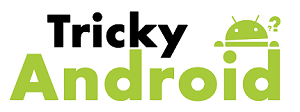What is a CPA?
Given that a certified public accountant’s toolkit covers everything from tax preparation to financial statements to financial planning to forensic accounting to internal audits and to income tax, the CPA’s primary role is to assist businesses in growing and prospering. And, while a CPA is an accountant, not all accountants are CPAs, and the reverse is also true.
A certified public accountant (CPA) is distinct from an accountant. Anyone who performs accounting functions of any kind, even those who do not hold a formal accounting degree, may refer to themselves as an accountant.
The term “certified public accountant” refers to someone who has achieved the professional title of “certified public accountant” by a combination of education, experience, and licensure. If you are in search of one, you can Contact CPA California and save yourself from the troubles of doing it all yourself.
Additionally, in addition to successfully completing an accounting program of study and gaining professional job experience in the field of public accounting, a CPA candidate must sit for, and pass, the Uniform CPA Examination.
The American Institute of Certified Public Accountants (AICPA) develops and grades the test (AICPA). The licensing of accountants, on the other hand, is handled by the state, district, and county boards of accountancy. After being licensed, the individual may use the designation and identify oneself as a Certified Public Accountant (CPA).
Important Capabilities
There are a variety of talents that all CPAs must possess in order to be successful in their positions. The following are some of the most significant abilities for accountants:
- Accounting experts must pay close attention to the smallest of details in order to maintain the accuracy and organization of their information. Because of the huge quantity of financial data that must be examined, it is easy to make mistakes; nevertheless, if these mistakes are not detected in time, they can snowball into far more serious difficulties.
- Knowledge of business functions: To be effective in this job, an accountant must be familiar with the fundamental operations of a company to correctly evaluate and interpret financial data. Having a sound business foundation gives context for the financial information that accountants deal with daily, which helps them do their jobs better.
- Computer literacy: In order to be successful in this sector, professionals must be able to use complex accounting software and other computer-based tools.
- Competencies in financial data collection and analysis: Gathering and analyzing financial data is a significant component of accounting and is a critical part of spotting trends and possible difficulties. According to industry experts, applying data analytics to the accounting sector is a new trend in the business that is likely to have an increasing influence in the future.
- Ability to communicate effectively: Accountants must be able to listen carefully in order to correctly acquire information and statistics from clients, management, and other parties involved. Aside from that, they must be able to communicate the results of their job clearly and effectively and present their findings in written reports.
- Mathematical abilities: A widespread misunderstanding is that in order to be an accountant, you must be very gifted in mathematics. It is true that math abilities are necessary in order to evaluate, compare, and understand data and numbers; but, advanced mathematical skills are not generally required in order to become an accountant in the traditional sense.













